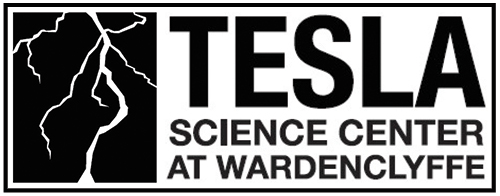Announcements
Atlas Obscura Article by Sarah Laskow – THE TOWER WENT 187 FEET up into the sky. The base was framed with wood, but the giant ball on top, 68 feet in diameter, was made of steel. In the ground below, there were said to be tunnels and an “iron root system” that went deep into earth. Nikola Tesla, the inventor and engineer who helped electrify America, believed the tower was the start of a system that could deliver electricity, without wires, to the whole world.
At the beginning of the 20th century, Tesla had become famous for his work on AC power. But he had other big ideas. At his laboratory in Colorado, he had conducted experiments with wireless transmission, trying to send electricity through the ground. His notes on this work are hard to draw conclusions from. But it seems that in at least one instance he had some success. At the very least, he came back east convinced that he could make this idea a reality, on a much larger scale.
After shopping his idea around to the some of the richest men in the world, Tesla secured backing—a solid $150,000—from J.P. Morgan. The investor was most interested in the idea of wireless communication: Guglielmo Marconi, an Italian inventor, had recently been demonstrating his system for wireless telegraphy, sending messages from ships back to land. But Tesla had bigger ideas.

Construction began in 1901 in Long Island on what would become known as Wardenclyffe Tower. Tesla imagined that it would be the beginning of a network of towers, 30 at least, around the world. He believed that these towers would allow him to send electricity through the atmosphere, which anyone with the correct equipment could tap into. Electric power would be ubiquitous. He would make “the whole of this globe…quiver.”
This idea was never going to work: The scientific theories that underlay Tesla’s dream would later be pulled apart. Electricity can be transmitted through the air, but the amount of power needed to send any substantial amount makes this an extremely impractical system. But even to try it, Tesla needed more money, which Morgan was unwilling to provide. There were reports of sparks flying from the tower once or twice, but for the most part it remained a hulking metal orb of mysterious purpose.
After financing dried up, Tesla mortgaged the property and eventually, as his financial troubles grew deeper, he lost it altogether. In 1917, the new owner, trying to recoup some value, had the tower dynamited down and converted into scrap metal. After the first blast, the tower listed to the side and remained tilting towards the ground, a failed experiment, until the workers pulled it down.




